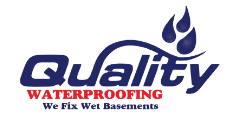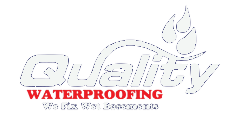Don’t Let Leaks Dampen Your Day: Why Quality Waterproofing and Materials Matter
Water damage is every property owner’s nightmare. From unsightly stains and unpleasant odors to structural damage and even health hazards like mold, the consequences of a leaky building can be extensive and costly. That’s why quality waterproofing isn’t just an expense – it’s an essential investment in the longevity and safety of your home or business.
But what exactly constitutes “quality waterproofing”? It’s a combination of expert application and, crucially, the use of the best materials available. You wouldn’t build a house on a weak foundation, so why would you trust your building’s defense against water to subpar products?
The Hidden Costs of Cutting Corners
It can be tempting to opt for cheaper waterproofing solutions or materials to save money upfront. However, this often proves to be a false economy. Inferior materials may:
- Degrade quickly: Cracking, peeling, or losing their efficacy within a few years, leading to premature failure.
- Offer inadequate protection: Not truly sealing against water ingress, leaving your property vulnerable.
- Require frequent repairs: The cycle of fixing leaks can become a recurring drain on your finances and patience.
Ultimately, choosing cheap materials often results in needing to redo the waterproofing sooner, costing more in the long run than if you had invested in quality from the start.
The Pillars of Effective Waterproofing: Best Materials
When we talk about the “best materials” for waterproofing, we’re referring to products that offer durability, flexibility, superior adhesion, and long-term performance. Here are a few examples of high-quality materials and why they stand out:
- Liquid Applied Membranes: These seamless membranes cure to form a monolithic, fully bonded, elastomeric waterproof barrier. They are excellent for complex shapes and ensure no weak points for water penetration. Look for products with high elasticity and UV resistance for exposed applications.
- Sheet Membranes (e.g., modified bitumen, EPDM, TPO): These factory-manufactured sheets offer consistent thickness and performance. Modified bitumen is known for its excellent flexibility and weather resistance, while EPDM and TPO are highly durable synthetic rubber membranes often used on flat roofs for their longevity and resistance to extreme temperatures and UV radiation.
- Cementitious Waterproofing Slurries: These are ideal for basements, wet areas, and structures exposed to water. They create a rigid, robust barrier that can withstand positive and negative hydrostatic pressure, effectively stopping water in its tracks.
- Bentonite Clay Systems: For below-grade applications, bentonite swells when exposed to water, creating a dense, impermeable barrier that self-heals minor punctures.
Beyond Materials: The Role of Expertise
Even the best materials won’t perform optimally without correct application. A skilled and experienced waterproofing professional understands:
- Surface preparation: Crucial for adhesion and performance.
- System selection: Choosing the right material for the specific application and environmental conditions.
- Detailing: Sealing tricky areas like penetrations, corners, and joints, which are common points of failure.
- Quality control: Ensuring every step of the process meets industry standards.
Invest in Peace of Mind with Quality Waterproofing Limited
At Quality Waterproofing Limited, we believe in providing not just a service, but a long-term solution. We are committed to supplying and applying only the highest quality waterproofing materials, ensuring that your property remains dry, safe, and protected for years to come. Our expertise, combined with premium products, offers you peace of mind and safeguards your investment.
Don’t wait for the drip, drip, drip to start. Contact Quality Waterproofing Limited today for a consultation and let us help you build a robust defense against water.


sikauganda
October 1, 2025 at 9:10 amgrg